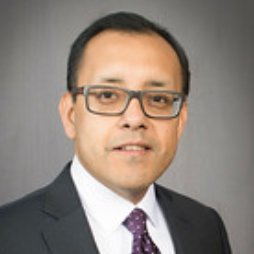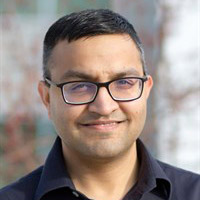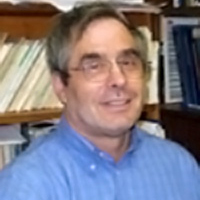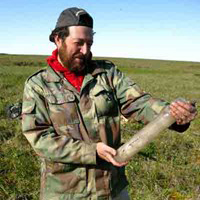Project Abstract
The well-being of Alaskan Indigenous communities depends on access to safe drinking water. However, water pollution has remained a reality for many of these communities due to naturally occurring and anthropogenic pollutants. As the climate warms, environmental changes will likely exacerbate water contamination problems by releasing entombed microorganisms, ancient organic carbon, nutrients, and metals through thawing of permafrost and melting of glaciers. While Alaskan communities are highly vulnerable to such changes, they also hold valuable Indigenous Knowledge about their water resources. This project aims to merge Western scientific knowledge with Indigenous Knowledge of water to better understand these changes in water quality over time. Additionally, this project will lead to the development of a framework for true convergence of Indigenous Knowledge and Western science that can be applied to similar environmental and cultural changes ongoing in other communities.
The project will collect and aggregate Western scientific data and Indigenous Knowledge of water quality in three environmental systems that are unique to the Arctic (glaciers, permafrost, and a glacier-impacted river system). Specific project objectives are to (i) assess the physical, chemical, and microbial quality of water stored frozen in glaciers and permafrost, (ii) analyze the interaction between background water chemistry (e.g., dissolved organic carbon, metals, nutrients) and microbial ecology at the present time, (iii) delineate Indigenous water quality knowledge using ethnographic approaches, including photo-voice and semi-structured interviews, and (iv) communicate with Alaskan community members through advisory boards and open community meetings at Selawik and Anchorage. A true convergence between Western scientific data and Indigenous Knowledge will be forged by a purpose-driven approach (i.e., community well-being) to shared learning. The broader impacts of this project include (i) engagement with underrepresented communities in STEM, (ii) inclusion and training of a diverse pool of students in project goals, and (iii) the novel "celebration of water" event in which photo-voice activities and stories told by Alaskan community members will broadly disseminate project knowledge.
Logistics Summary
This collaboration between Saleh (2022670, U Texas) and Aggarwal (2022590, UAF) aims to understand how drinking water quality in Alaska is impacted based on the source, (e.g. from glaciers, permafrost, and glacier impacted river systems), and how climate change will impact said quality. Beginning in 2012, a field team of 5 will focus on four primary study sites: three in southcentral Alaska (Matanuka, Skilak, and Knik glaciers), and one in northwestern Alaska (Selawik). The three southcentral locations are accessible by road from Anchorage, and the Selawik is accessible by air via the town of Kotzebue. In the southcentral locations, glacier core samples would be collected from the ablation zones 2-3 kilometers from the glacier terminus. Permafrost samples would be collected near Selawik. All samples would be collected with a SIPRE corer. Triplicate samples would be collected at each location in the summer (June to August) for all 4 years. The researchers would collect bulk water and biofilm samples in June, July, August, November, and December during all 4 years as well. The team would also collect water samples from nearby individual houses or community centers. In several Alaska communities, the researchers would engage in semi-structured interviews with individuals and hold community meetings in year 4 with the Knik and Chikcaloon tribes, in a community near Anchorage, and Selawik, Alaska. Subawards granted for Knik Tribal Council (KTC), Alaska Native Tribal Health Consortium (ANTHC), and Huntington Consultancy (HC), which involves an interdisciplinary team of researchers (an anthropologist, a polar expert, permafrost scientists, and environmental engineers) and tribal community members.
Season Field Site
2021 Alaska - Anchorage
2021 Alaska - Selawik
2022 Alaska - Anchorage
2022 Alaska - Selawik
2023 Alaska - Anchorage
2023 Alaska - Selawik
2024 Alaska - Anchorage
2024 Alaska - Selawik
Project Location
Dates
-Location
Anchorage, AK; Selawik, AKMembers
Principal Investigator

Principal Investigator

Co-Principal Investigator

Co-Principal Investigator

Co-Principal Investigator

